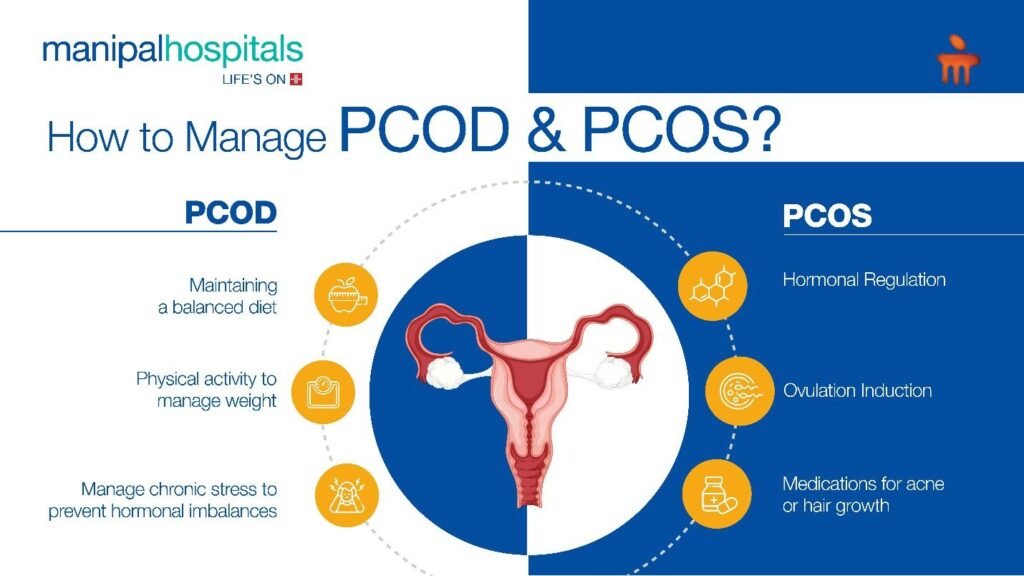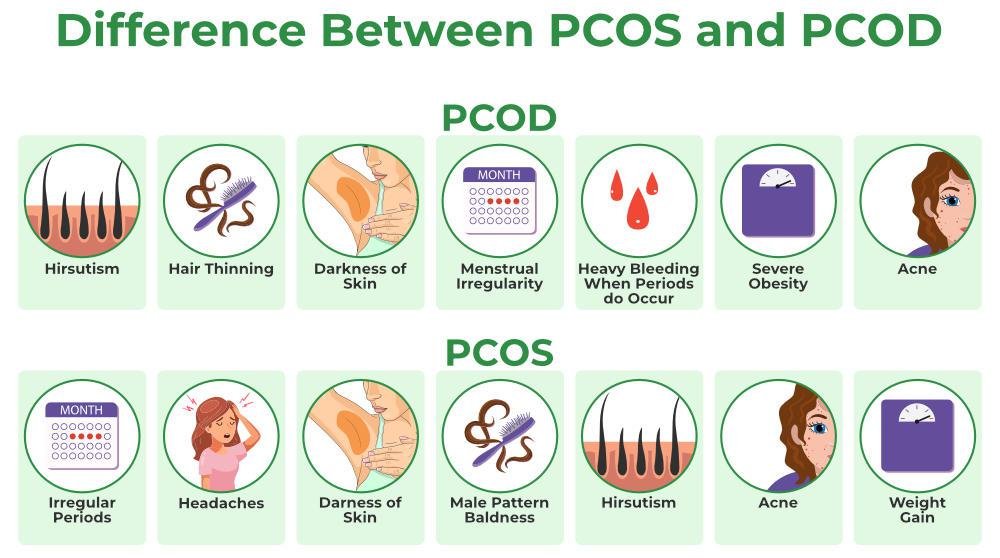Polycystic Ovary Syndrome (PCOS) and Polycystic Ovary Disorder (PCOD) are two of the most common hormonal conditions affecting women today. If you’ve been diagnosed with either or are simply trying to understand the difference between PCOS and PCOD, you’re not alone. Many women struggle with similar questions: What is PCOD and PCOS? Are they the same? Which one is worse? Let’s break it down in simple terms, so you can understand what’s happening in your body and how to manage it effectively.
What is PCOD and PCOS?
PCOD (Polycystic Ovary Disorder) and PCOS (Polycystic Ovary Syndrome) are conditions related to the ovaries, where multiple fluid-filled sacs (cysts) develop. However, the difference between PCOS and PCOD lies in their severity and impact on overall health.
- PCOD is a hormonal imbalance where the ovaries produce immature eggs, leading to cyst formation. It’s a common condition and often manageable with lifestyle changes.
- PCOS, on the other hand, is a more severe endocrine disorder that affects metabolism, hormones, and even fertility. Women with PCOS often experience insulin resistance, irregular periods, and a higher risk of other health complications.

PCOS vs PCOD Symptoms
Both conditions share some symptoms, but PCOS tends to be more intense. Here’s a quick comparison:
| Symptoms | PCOD | PCOS |
|---|---|---|
| Irregular periods | Mild | Severe |
| Weight gain | Moderate | Rapid & stubborn |
| Excess facial hair | Less common | More common |
| Acne & oily skin | Mild to moderate | Severe |
| Hair thinning | Mild | More pronounced |
| Fertility issues | Less likely | More likely |
PCOS vs PCOD weight gain is a common concern, as PCOS-related weight gain is harder to manage due to insulin resistance.
PCOS vs PCOD: Which is Worse?
While both conditions require attention, PCOS is generally considered more serious due to its long-term impact on fertility, metabolism, and heart health. PCOD, although concerning, can often be managed with a healthy diet and lifestyle changes.
Causes of PCOS and PCOD
The exact cause of these conditions is not fully understood, but factors such as genetics, insulin resistance, poor diet, and hormonal imbalances contribute significantly. Stress and environmental toxins may also play a role.
PCOS vs PCOD Hormonal Imbalance & Fertility Issues
Hormones like insulin, testosterone, and estrogen play a crucial role in both conditions. PCOS is more likely to cause hormonal imbalance, leading to severe fertility problems. PCOS vs PCOD fertility issues differ in severity, with PCOS often requiring medical intervention.
PCOS vs PCOD Pregnancy: Can You Conceive?
Women with PCOD can usually conceive naturally with slight lifestyle modifications. However, women with PCOS may struggle with ovulation, often requiring fertility treatments or medications to boost ovulation.
PCOS vs PCOD Treatment
While there’s no one-size-fits-all approach, treatment usually includes:
- Lifestyle modifications: A balanced PCOD vs PCOS diet plan with high-fiber foods, lean proteins, and minimal processed sugars can help.
- Exercise: Regular workouts improve insulin sensitivity.
- Medications: Birth control pills regulate periods, while metformin helps with insulin resistance.
- Natural remedies: Ayurveda and herbal supplements can offer additional support.

Can PCOD Turn Into PCOS?
PCOD does not necessarily turn into PCOS, but if left unmanaged, hormonal imbalances can worsen, making symptoms more severe.
How to Cure PCOS and PCOD Naturally
While there’s no absolute cure, here’s how to manage PCOS and PCOD effectively:
- Eat a nutrient-dense diet.
- Stay active with yoga, strength training, and cardio.
- Manage stress with meditation and sleep hygiene.
- Consider supplements like inositol and omega-3 fatty acids.
PCOS vs PCOD Ultrasound & Diagnosis
Both conditions are diagnosed through ultrasound scans, blood tests (checking hormone levels), and a review of symptoms. PCOS may also require insulin and cholesterol testing.
Can PCOS Be Cured Permanently?
There is no permanent cure, but with the right management strategies, symptoms can be significantly controlled.
Final Thoughts
Understanding PCOS vs PCOD is the first step in taking control of your health. If you suspect you have either condition, consult a doctor for a personalized treatment plan. Remember, your lifestyle plays a crucial role in managing these conditions—small changes can lead to significant improvements. Stay informed, stay healthy!



